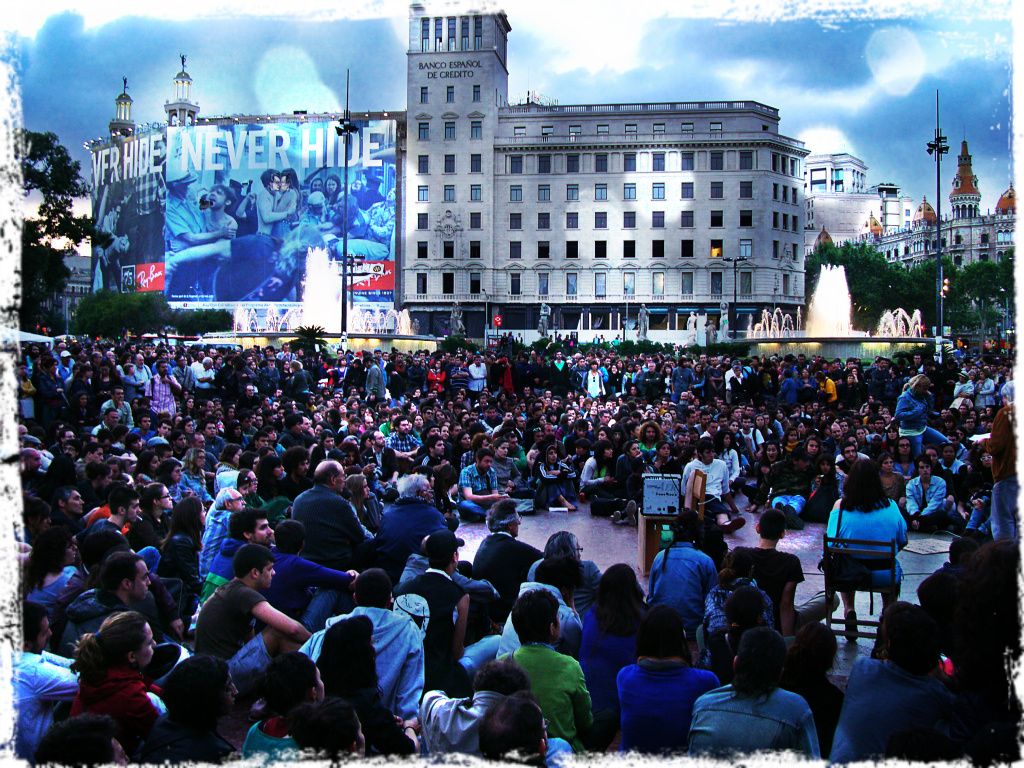Posted 12 years ago
We mutants

We mutants have to become so other that we no longer become enamored with power.
Ecological disasters, material bondage, racism and xenophobia, hunt, like so many other threats this new millennium. Our societies remain stupefied, powerless before the challenges that confront it. We contribute to the pollution of air and water, to the exploitation of animals, to the destruction of forests, to disturbances of climates, to the disappearance of a multitude of living species, to the impoverishment of the genetic capital of the biosphere, to the destruction of landscapes, to the suffocation of cities, and to the progressive abandonment of cultural values and moral references in the areas of human solidarity.
The social production, now under control of a capitalist and technocratic elite, leads to a systematic over-valorisation of finance and industries, to an under-estimation of essential use-values (saving the environment, solidarity in anti-exploitation struggles), and to the flattening out and repression of desires in their singularities, that is, the loss of the meaning of life. The last limit, between depletion and “progress”, not only remains but has become absolute - the death of the planet. This limit cannot be internalized by integrated world capitalism. It can, however, be crossed.
Only the appearance of new ways of relating to the world and to society will alter the “fixation” on capital and it’s various crystallization’s of power.
Capital, in the West as in the East, is nothing more than the capital of power, that is, a mode of semiotization, of homogenization and of transmission of various forms of power (power over goods, over land, over work, over subordinates - the “inferiors”). Only the appearance of new ways of relating to the world and to society will alter the “fixation” on capital and it’s various crystallization’s of power.
Resistance, however, has become increasingly problematic, as capitalism dispenses with the need for its subjects to accept ideological or moral justifications of its (of their) existence. When it does produce precepts, one is heard with overwhelming regularity: the idea that a body can (only) serve society by serving itself. “Self-interest” is the basic capitalist expression of the Common Good. Capitalism is the ethic of greed.
Capitalism is flexible in relationships of production and in social relations. It is capable to adapt to new forms of sensibility and new types of human relationships which are “mutating” here and there. There are types of “mutants”, however, that could well be on their way to rupture and unexpected revolution. These “mutants” threaten the essential relationships on which the system is based (respect for work, for hierarchy, for State-power, for private ownership of the means of production, for the religion of consumption). The question is whether these “mutants” will remain on the outskirts of society, or whether they will put societies good-common-sense (with its fixated on power and self-interest) radically into question.
The reversal of capitalism then, invokes not only the struggle against material bondage, exploitation and visible forms of repression. But also, from the outset a becoming-other, a collective “mutating” through the creation of many alternative set-ups.
If there is a way out of the “ethic of greed”, it is right were we are: in the final constraint. The absolute limit of capitalism must be shifted back from planetary death to becoming-other. The “mutating” we are now allowed must be pushed back beyond the pale of self-interest. The last bastion of good-common-sense must come down. We mutants have to become so other that we no longer become enamored with power.
Attributed to Brian Masumi, Gilles Deleuze, and Felix Guatarri.